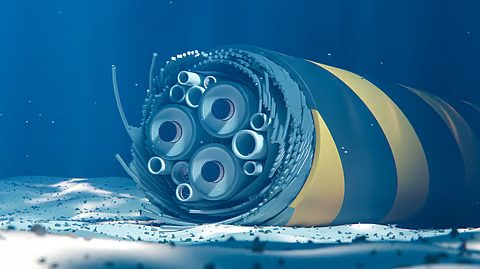
Technology & Innovation
Red Sea Cable Delays Won’t Affect UAE Internet Speeds for Now, but Experts Warn of Rising Risks
Delays to new subsea cable projects in the Red Sea are not expected to cause immediate disruptions to internet speeds in the UAE, according to industry experts. Despite the country’s strong digital infrastructure and multiple connectivity routes, specialists caution that the region remains exposed to long-term vulnerabilities if new high-capacity cables continue to be postponed.
The Red Sea has seen repeated disruptions over the past two years, creating additional strain on an already fragile global data corridor. Recent cable cuts off the coast of Jeddah demonstrated how quickly gaps in resilience can emerge when critical systems are compromised.
According to Bloomberg, several key subsea cable systems remain unfinished due to geopolitical tensions, regulatory challenges and security threats. Among them is Meta’s 2Africa project, which has substantial sections pending completion in the Red Sea.
A Growing Bottleneck
Experts say the Red Sea has become one of the weakest points in global internet infrastructure. Tony O’Sullivan, CEO of RETN, noted that when major cuts occurred in February 2024, up to 70% of Europe–Asia data traffic was disrupted — far higher than initial estimates. He warns that similar vulnerabilities are resurfacing.
O’Sullivan said the UAE handled recent incidents better than other regional markets thanks to diverse subsea and terrestrial links, but the region still lacks adequate high-bandwidth alternatives. “Delays and disruptions in the Red Sea absolutely have a realistic impact on regional resilience,” he said.
Why UAE Traffic Struggled During Cuts
When four cable systems were severed near Jeddah earlier this year, the UAE also felt immediate pressure. With terrestrial routes unable to absorb the sudden surge in traffic, operators were forced to reroute data across far longer paths, leading to slowdowns.
O’Sullivan added that postponing new cable projects removes crucial capacity that would have helped absorb such shocks. He stressed that resilience now requires more than having alternative routes—it requires ensuring those routes can support full traffic loads for extended periods, especially since subsea repairs increasingly take six to nine months or more.
Impact on Digital Finance
The risks extend beyond consumer internet usage. Vincent Chok, Founder and CEO of First Digital Trust, said delays in subsea systems affect financial institutions that rely on real-time data.
“Slower connectivity creates latency in payment processing, trading execution and cross-border settlements,” he said, emphasising that even advanced digital financial ecosystems can be vulnerable when physical infrastructure is strained.
Chok also praised the UAE’s efforts to build diversified connectivity and regulatory frameworks that support both traditional and digital financial innovation.
Long-Term Resilience at Stake
While experts agree that UAE users are unlikely to experience immediate internet slowdowns, they warn that long-term stability depends on adding new capacity and reducing reliance on a single maritime corridor.
As delays continue and the Red Sea remains a global choke point, ensuring diverse and sufficiently robust routes will be essential to maintaining the region’s digital resilience.